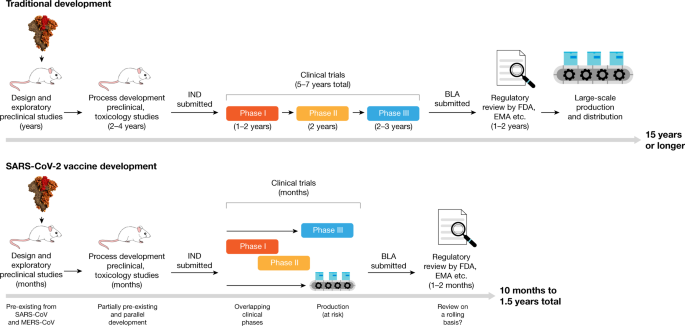A new COVID-19 booster being created by Moderna could protect against the variants of SARS-CoV-2 first found in Brazil and South Africa, according to the first results from a small clinical trial.
The US biotech firm started developing variant-specific boosters earlier this year after evidence that several coronavirus variants can ‘break through’ current vaccines.
This is their first clinical trial in humans, after early tests on mice, and so far the results are promising.
“We are encouraged by these new data, which reinforce our confidence that our booster strategy should be protective against these newly detected variants,” Moderna CEO Stéphane Bancel said in a press release.
To test the new booster, 40 people who’d already been fully vaccinated with two doses of the Moderna vaccine between six and eight months ago were tested for their levels of neutralizing antibodies – proteins made by immune cells that bind to viruses.
At the outset of the trial, results showed that only about half of the participants had detectable levels of antibodies against two new variants: B.1.351, first detected in South Africa, and P.1. first discovered in Brazil.
They were then given one of three options: another dose of the original Moderna vaccine; a version tailored specifically to the B.1.351 variant; or a version that combined a 50/50 mix of the two.
Fifteen days later, among the people who received the original Moderna vaccine or the booster against B.1.351, the results showed both groups had improved antibodies against both B.1.351 and P.1. (Data is not yet available on the 50/50 mix group.)
On average, though, those given the new booster produced over 150 percent of the amount of variant-specific neutralizing antibodies compared to those who received the original shot.
To be clear, the results currently haven’t been peer-reviewed. Moderna says the results have been submitted to pre-print server bioRxiv, but they’re not yet online.
So, for now, we need to take things with a grain of salt and not get ahead of ourselves.
Side effects from this first trial were similar to those reported by people getting the second dose of Moderna’s original vaccine, including headache, muscle and joint pain, and fatigue.
However, in a promising sign, these effects were slightly less common with the new booster. In the trial, 10.5 percent of people who got the variant-specific booster reported a grade-three adverse event, compared to 15 percent of those who got the third dose of the original Moderna vaccine.
Many other vaccine producers are currently working on variant-specific versions of their shots. Two studies published this week based on real-world data also show that the regular Pfizer-BioNTech vaccine is effective at protecting against the worst outcomes when it comes to B.1.351 and B.1.1.7, which was first identified in the UK.
Let’s hope this is just the start of promising new advances to keep us safe from SARS-CoV-2 as the virus continues to evolve.



